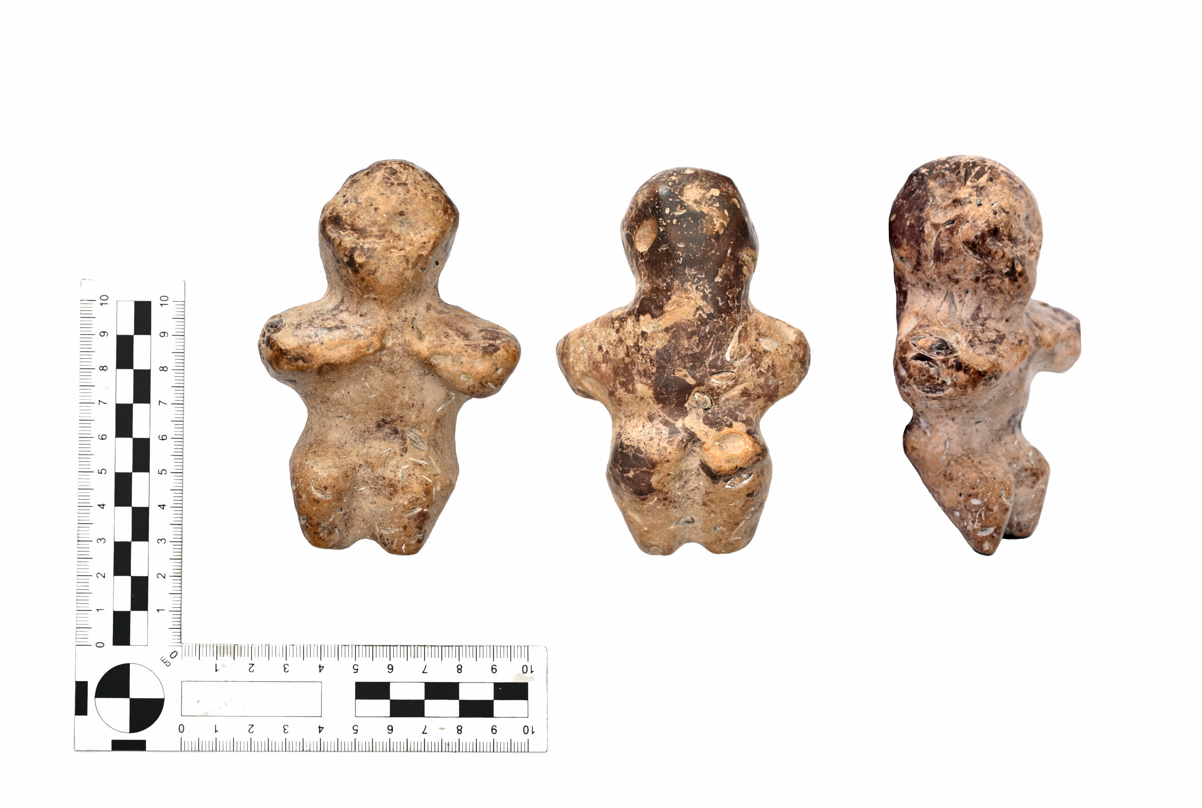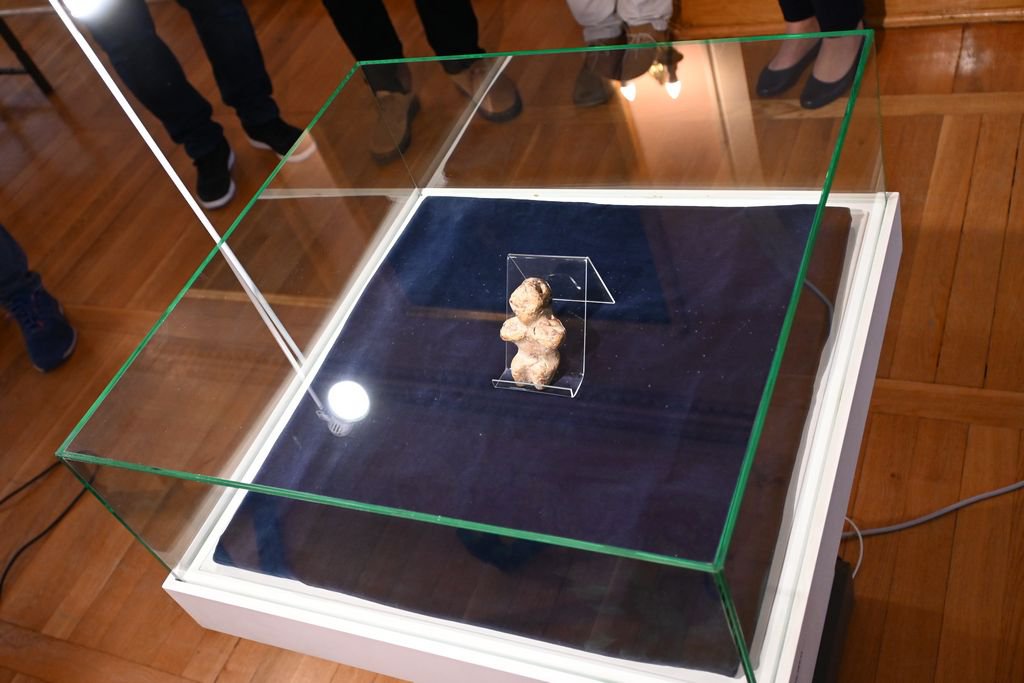It might look like a prehistoric gummy bear, but this palm-sized figurine is an exceptional piece of art and a mysterious outlier in both time and place.
The figurine was found in December 2022 near Kołobrzeg in northern Poland near the Baltic coast. Archaeologists have carefully pored over the object for a couple of years, but it was recently unveiled to the public at a press conference this month at the local Kołobrzeg City Museum.
Dated to around 6,000 years ago, the limestone figurine depicts a curvaceous female figure with wide hips and big breasts (yes, those features sticking out of its shoulders/chest are not arms).
Hundreds of similar artifacts have been discovered across Europe, as well as a handful in Asia. They are known as Venus figurines, stylized depictions of women that spread widely across the continent starting around 35,000 years ago. One of the oldest (and arguably the most beautiful) examples is the Venus of Willendorf, unearthed in Austria and carved from Italian rock.
It’s a profound mystery how this artistic style became so widespread across vast distances and over thousands of years, but it suggests these figurines held deep cultural significance for the people who created them.

“The stylized form of the Kołobrzeg Venus reveals high artistic skill,” said the museum.
Image courtesy of Muzeum Oręża Polskiego w Kołobrzegu
Previous theories about their “meaning” have suggested that the shapely bodies are symbols of fertility or desire, hence the Roman goddess of love and beauty being their namesake.
Others have speculated they might be self-portraits of females, created from the perspective of a woman looking down at her own body, highlighted by the large breasts, small feet, and lack of faces. Alternatively, the full-figured physique may have represented an idealized body type for people struggling to live in exceptionally harsh conditions where food wasn’t abundant.
The recently discovered Kołobrzeg Venus from Poland does not resolve any of these uncertainties, although it is significant for being exceptionally young for its style.

The figurine was recently revealed during a press conference at the Polish museum.
Image courtesy of Muzeum Oręża Polskiego w Kołobrzegu
Most Venus figurines in Europe date to between 35,000 and 11,000 years ago. However, this one appears to have been sculpted just 6,000 years ago by some of the first farmers who settled in the fertile lands of Western Pomerania, along the modern-day border of Germany and Poland. Later figures from the sixth and fifth millennium BCE are typically limited to southern Europe below the Carpathian Mountains, but never in northern Poland.
“The Kołobrzeg Venus is a unique find from Poland, where no analogy has been found so far,” Kołobrzeg City Museum said in a statement.
“The stylized form of the Kołobrzeg Venus reveals high artistic skill and, despite the simplicity of its form, stands out for its exceptional aesthetic values,” it adds.
The unique specimen also highlights the care that went into crafting such artifacts. Despite being made out of a rough material embedded with mollusk shells, the figure’s voluptuous hips and breasts are exceptionally smooth, suggesting they were deliberately polished into shape over time. Alternatively, the smoothness might be the result of storage in an organic container, such as a leather pouch.
To find out more, an interdisciplinary team of archeologists, historians, and geologists will continue to study the specimen, hoping it will yield further clues about the people who carved it, the culture it belonged to, and why this artistic tradition endured for so long.
Source Link: Nudes Of The Stone Age: 6,000-Year-Old Kołobrzeg Venus Is A Prehistoric Masterpiece